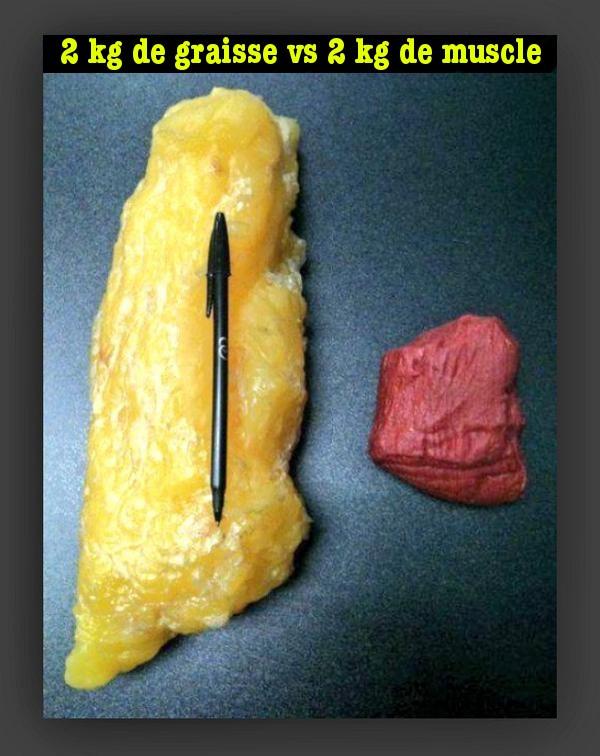
Votre poids n’a aucune importance Mouv'eat
Protein isn't magic and more intake doesn't necessarily equate to more gains. When trying to build muscle it would probably be wise to aim for around 1.6-2.2 grams of protein per kg of total bodyweight per day (0.73-1 grams per lb) depending on your own personal eating preferences and body composition goals. Eating a little less than this would.
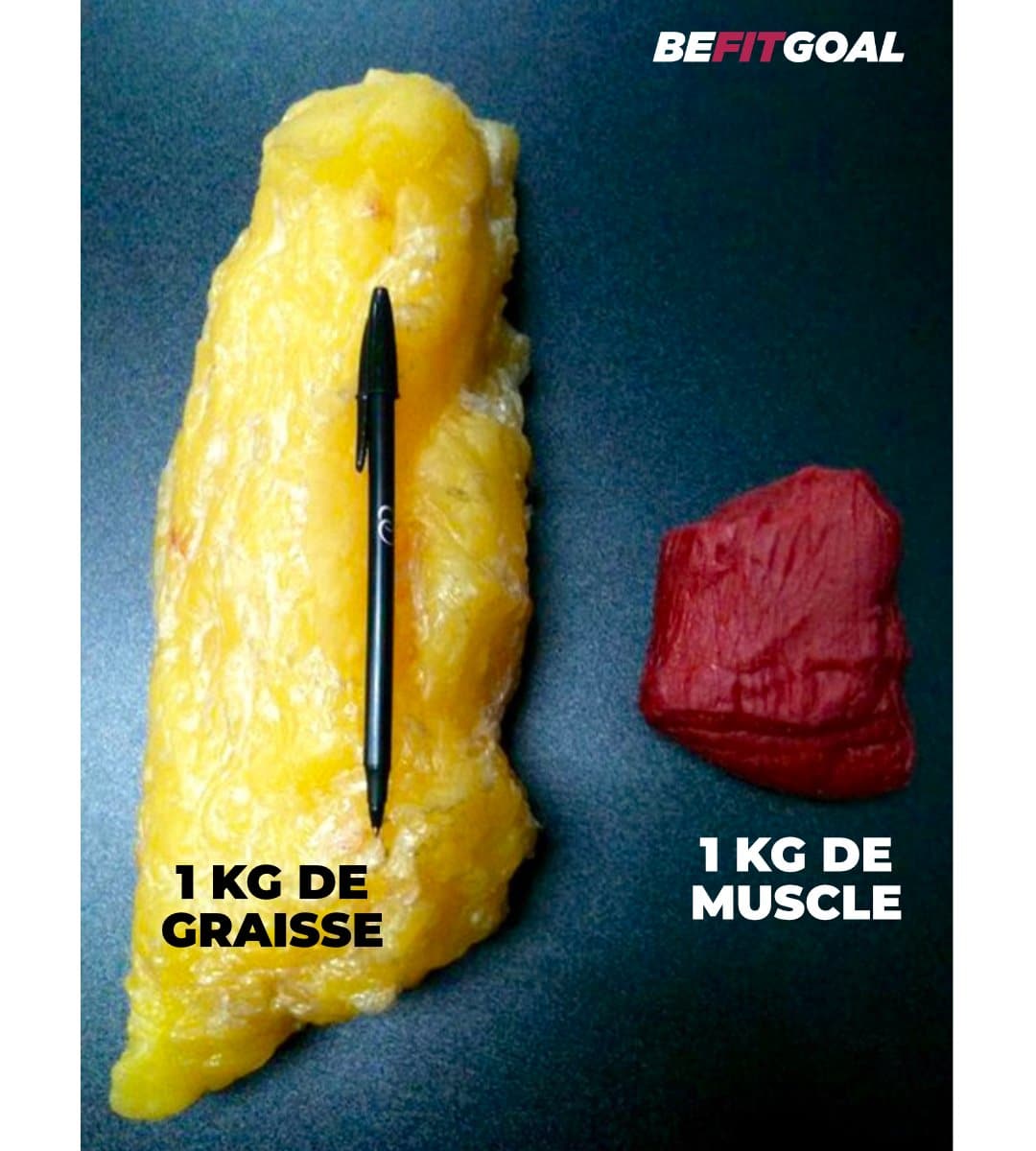
8 raisons pour lesquelles votre poids indiqué sur la balance ne veut rien dire
1kg de muscle est aussi lourd qu'un kilo de graisse.. WawaWest- Niveau 16 22 octobre 2013 à 18:53:55 Le muscle est plus lourd que la graisse, mais dans ton exemple, c'est pareil, c'est.
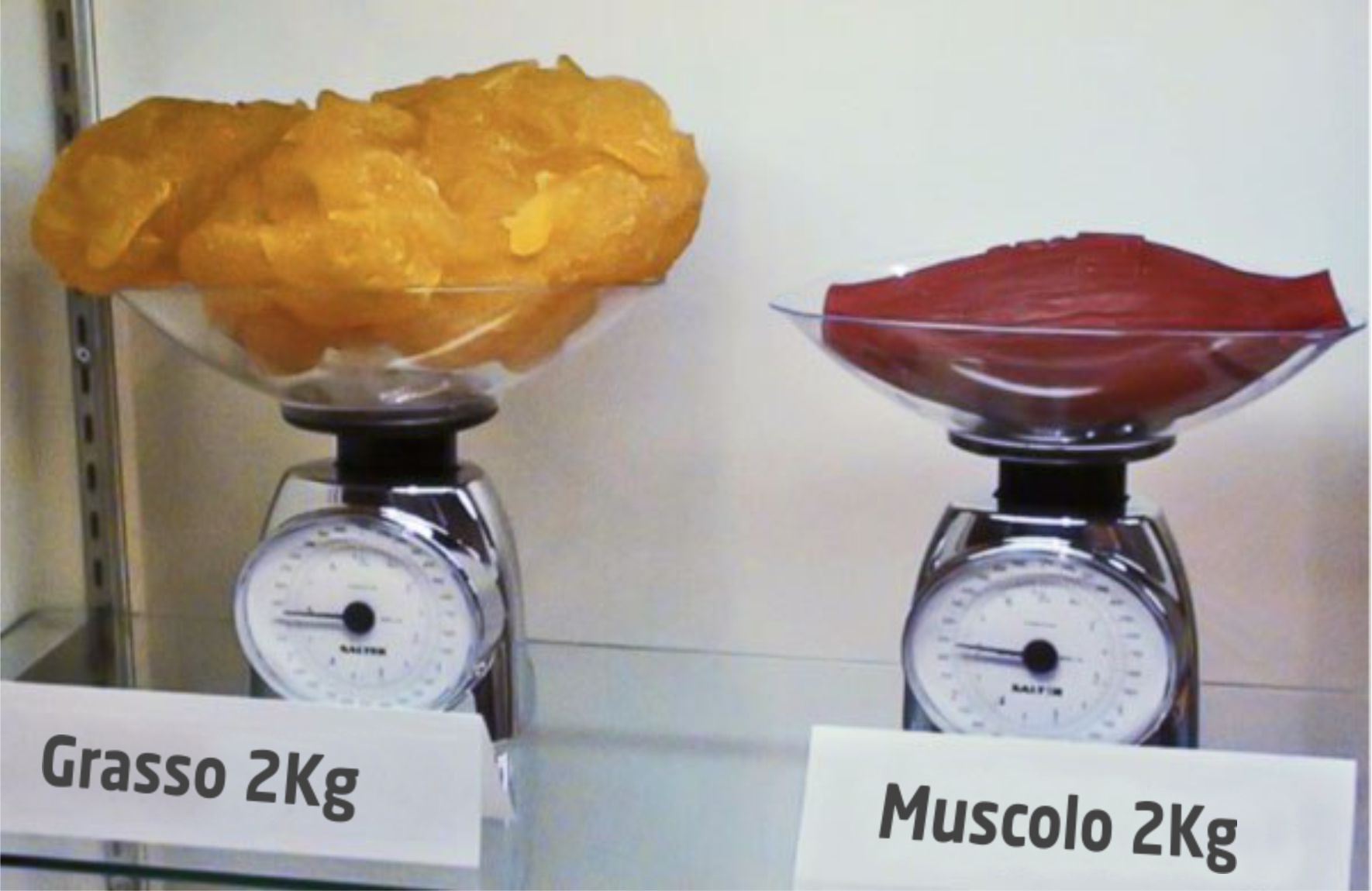
Un chilo di grasso corporeo? Ecco a quanti porzioni di cibo corrisponde! Mensenjoy
GLUT1-DS is a rare disorder mostly due to de novo mutations in SLC2A1, which encodes the type 1 glucose transporter protein. 1 Mutations in this gene limit brain glucose availability and lead to cerebral energy deficiency. 1 The consequences of energy failure on brain development and functions vary from mild motor dysfunction to severe.

Muscle vs masse graisseuse lequel est le plus lourd
Volume : 1 kg masse musculaire VS 1kg masse graisseuse : En revanche, intéressons nous désormais au volume entre le gras et le muscle. Au final, même si les personnes utilisent le mauvais terme, nous comprenons où ils veulent en venir.

Secher la graisse Régime pauvre en calories
Final Thoughts. To build muscle, aim for around 0.7 grams of protein per pound, or 1.6 grams per kilogram, of bodyweight, each day. That will do the job for most people. There's no reason you can't eat more. If anything, I'd rather err on the side of eating a little too much, rather than not enough.

1kg Graisse Vs 1 Kg Muscle AUTOMASITES
C'est donc normal qu'un kilo de muscle occupe moins d'espace (possède moins de volume) dans le corps qu'un kilo de graisse. Pendant ce temps, le tissu graisseux est flottant, semblable à la gelée, et a besoin de plus d'espace pour se remuer sous votre peau et entre vos organes.
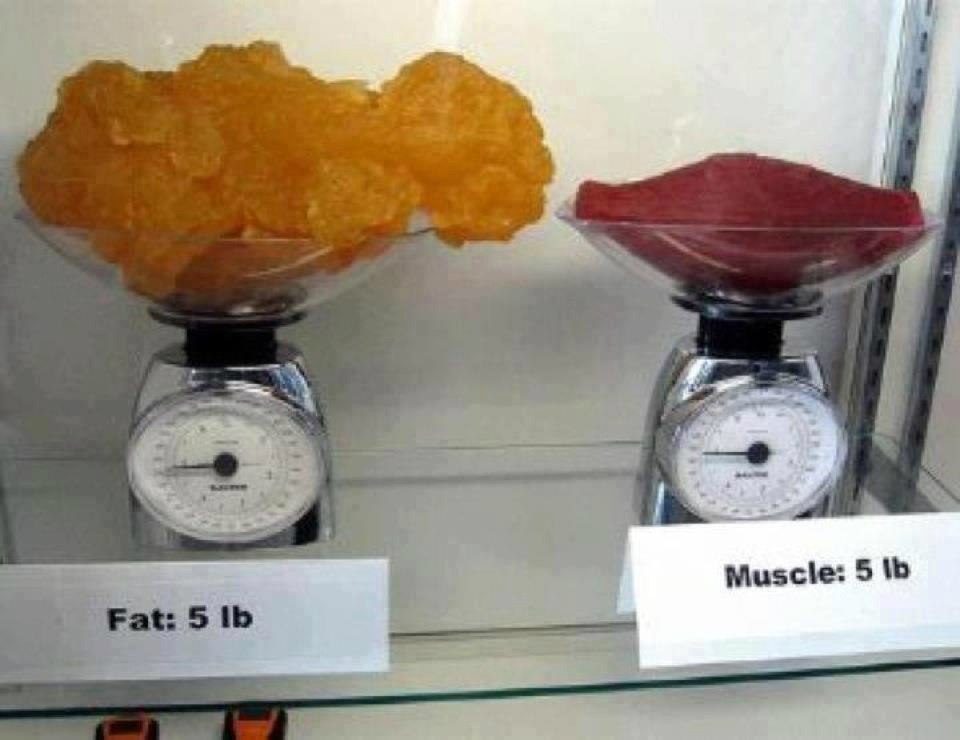
1kg Graisse Vs 1 Kg Muscle AUTOMASITES
Size Contrast. 1kg of fat and 1kg of muscle is equal. The difference is in total volume. 1kg of muscle is three times smaller than 1kg of fats. It's like; a mini ball vs. a wobbly bowl of jelly. Many people get confused when they train hard each week, eat well; however, their weight on the scale doesn't change, while they are getting.

La graisse brune True Fitness Knowledge
Now imagine your body is this energy-storing refrigerator. 1 kg of body fat has about 7,700 kcal and 1 kg of muscle mass has about 1,800 kcal. Let's assume that you have caught a bad flu and have to lie in bed almost all day for 3 weeks. During this time you will definitely lose some muscle mass. Let's say you lose 1 kg of muscle mass.

3 raisons pour lesquelles vous perdez du muscle et non de la graisse The Fitness Motivator
What it is: This is the percentage of the body's mass that is fluid. The human body is 50-75 percent water, and how much you have at any given time hinges on age, sex, and hydration. Most men will.

1kg Graisse Vs 1 Kg Muscle Communauté MCMS
7000 (nombre de kcal pour 1 kg de graisse corporelle) / 500 (déficit calorique de la diète) = 14 jours pour éliminer 1 kilo de gras

2 kg de graisse contre 2 kg de muscle
Research has shown that athletes undertaking high volume intense training (e.g. 3-6 hours in 1-2 workouts for 5-6 days per week) may need toconsume 8-10g/kg/day of carbohydrate. 2, 4 Some studies also suggest to the possibility of an even higher intake. 9. The majority of dietary carbohydrate should come from complex carbohydrates with a low to.

Pin on Cirugia Bariatrica
Definition A body fat scale can help a person determine their muscle mass percentage. Muscle mass refers to the amount of soft muscle tissue in the body. Other major components of the body.
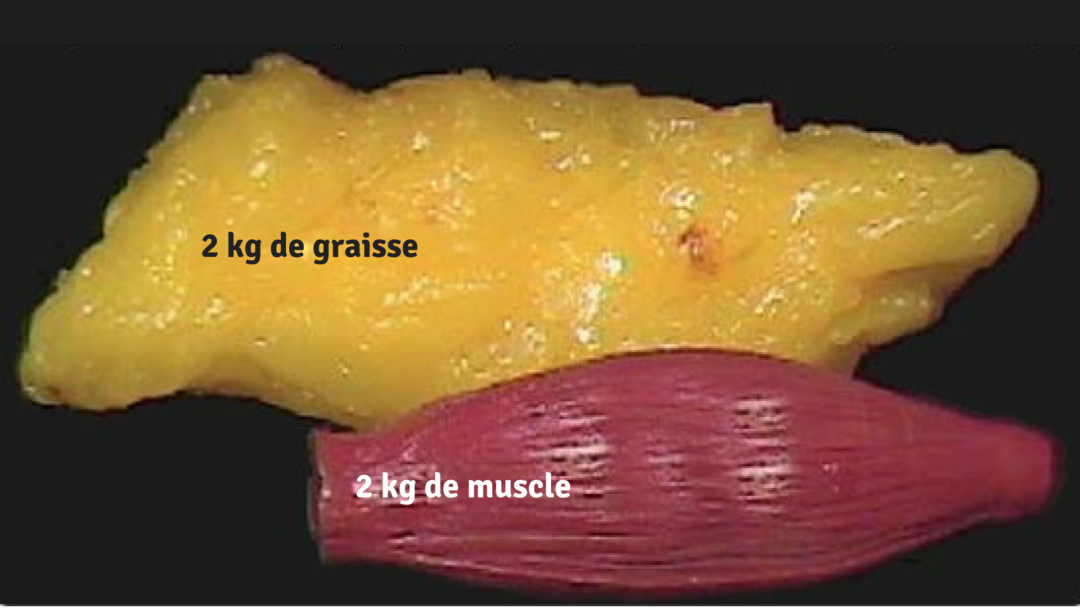
Pourquoi le poids n'a aucune importance ?! Nade Fitness
Moreover, muscle growth is an ATP-dependent process (Lambert et al., 2004), thus adequate energy needs to be available to build muscle beyond what is expended by bodily tissues and physical activity. The relative energy intake in our experiment was 67.5 kcal/kg/d and 50.1 kcal/kg/d for the G1 and the G2, respectively.
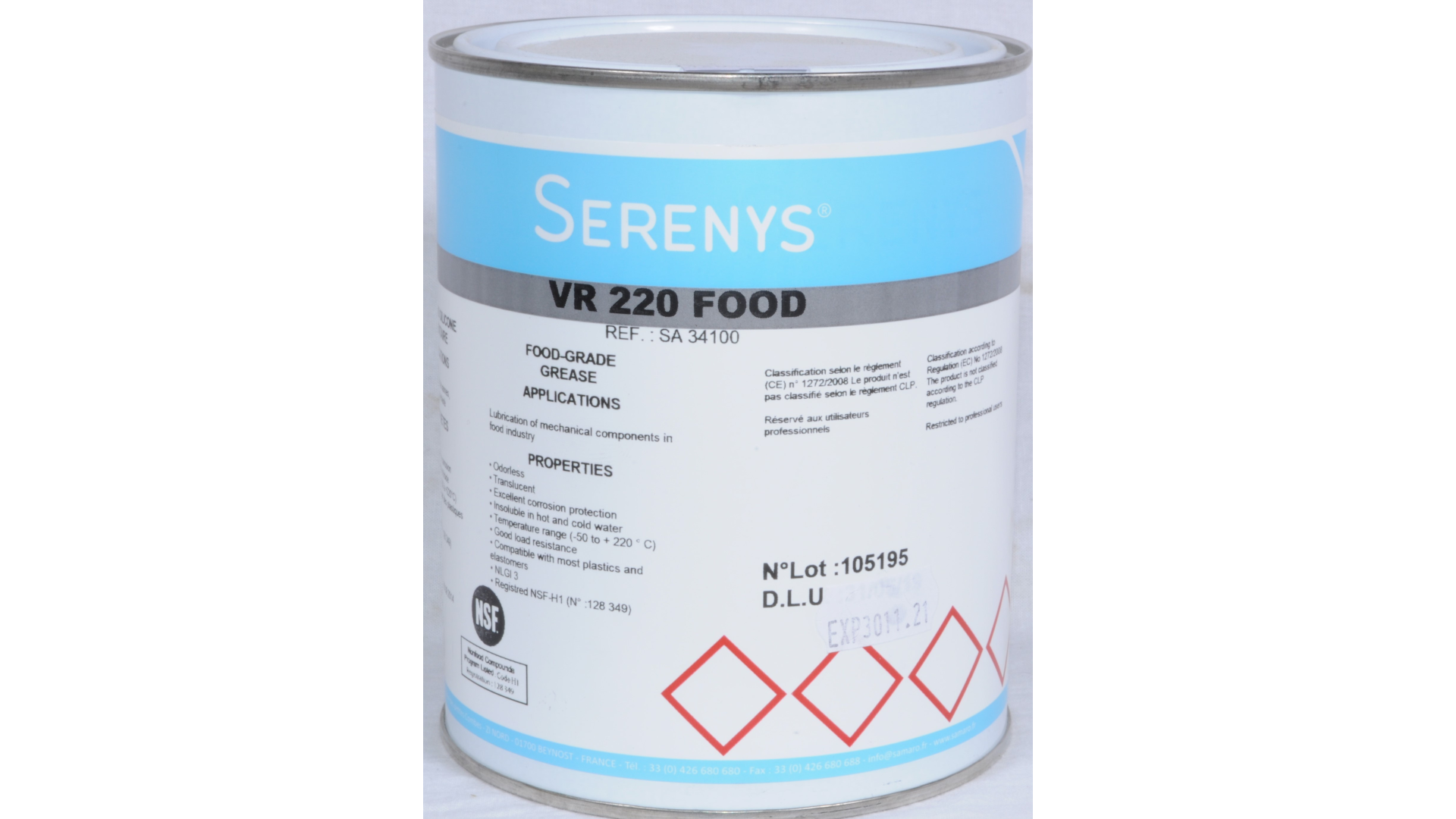
GRAISSE SILICONE ALIMENTAIRE POT 1 KG
Management of the COPD Patient with Comorbidities: An Experts Recommendation Document. 2020 May 7;15:1015-1037. doi: 10.2147/COPD.S242009. Jesús Recio Iglesias 1 ,, 3 , 4 Pere Almagro 5 6. 32440113. PMC7217705. 10.2147/COPD.S242009. Chronic obstructive pulmonary disease (COPD) is associated with multiple comorbidities, which impact negatively.
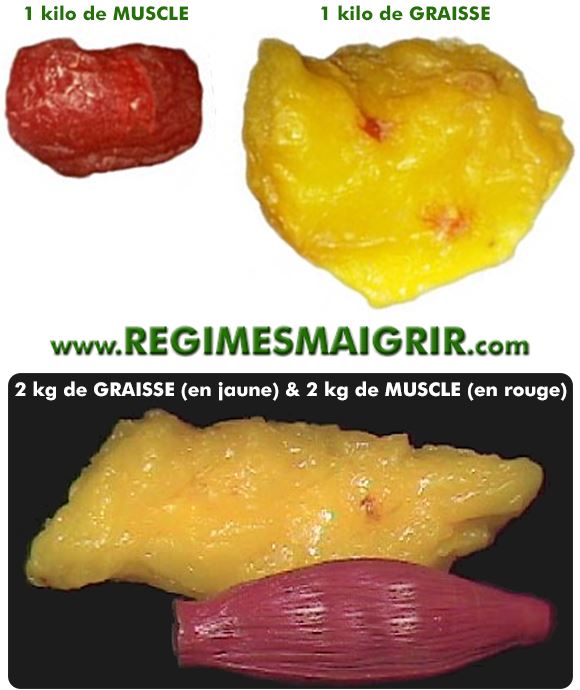
Un kilo de muscle estil plus lourd qu'un kilo de graisse
Dire que le muscle est plus lourd que la graisse est un abus de langage, car 1 kg de muscle est égal à 1 kg de graisses, de la même façon qu'1 kg de plumes est égal à 1 kg de plomb : quoi qu'il arrive, 1 kg pèsera toujours 1 kg. C'est donc le poids par rapport à un volume donné, à savoir la densité des tissus, qu'il faut.

Combien de calories un muscle brûle t’il ? Interval Training (HIIT)
The purpose of this narrative review is to provide an evidence-based assessment of the current literature examining increases in dietary protein intake above the recommended dietary allowance (RDA: 0.8 g/kg/d) in conjunction with chronic exercise on body composition (i.e., muscle, fat and bone).